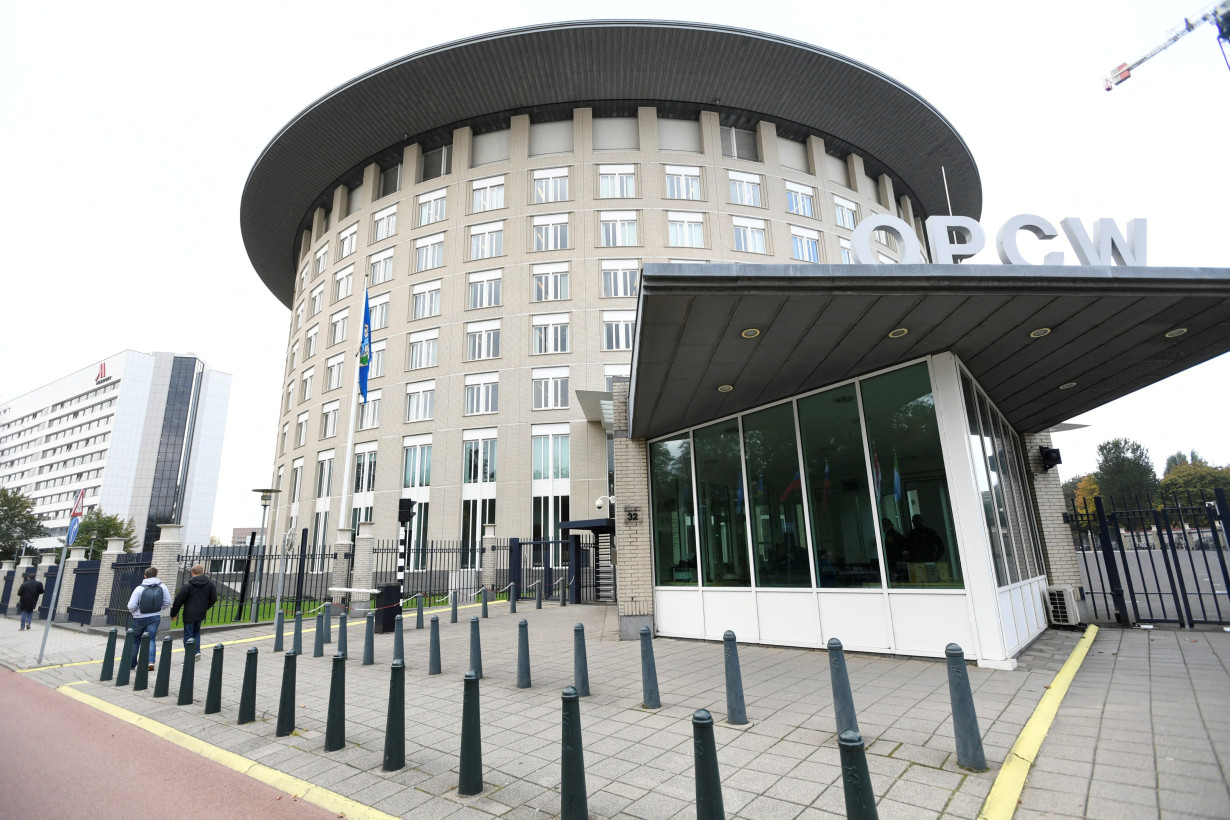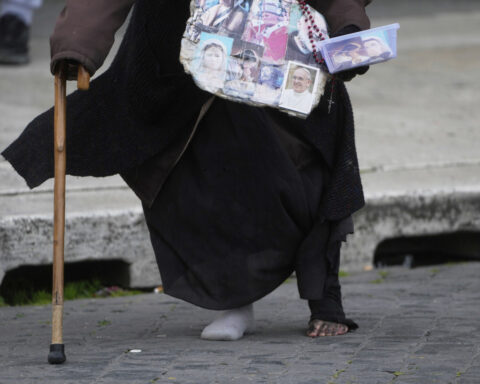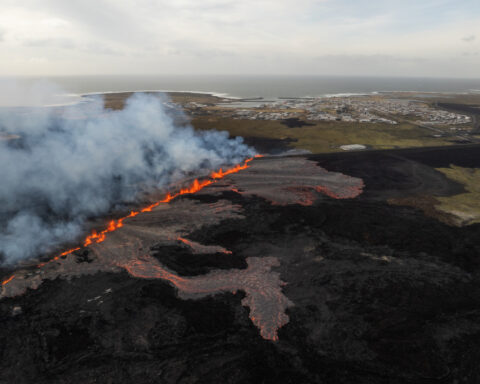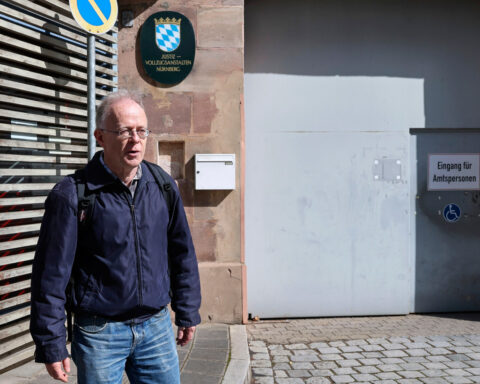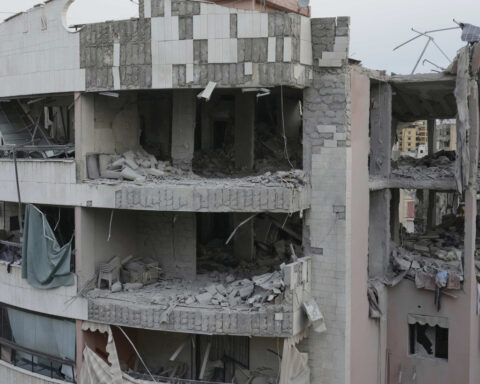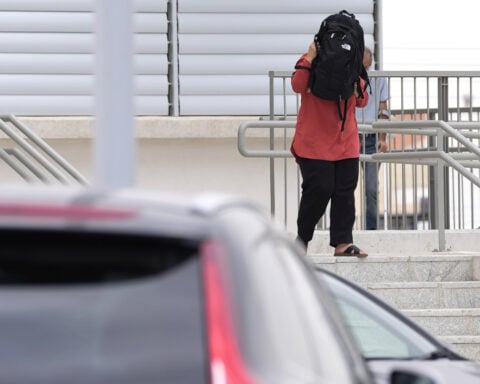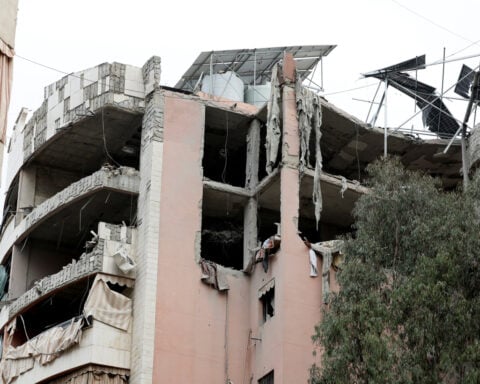AMSTERDAM - Chemical weapons inspectors have been taken by Syria's caretaker authorities to previously unseen production and storage locations dating from the rule of Bashar al-Assad, who was toppled three months ago, sources said on Friday.
A team from the Organisation for the Prohibition of Chemical Weapons (OPCW) visited Syria from March 12-21 to prepare for the task of locating and destroying remnants of Assad's illegal stockpile. Five locations were visited by inspectors, some of which had been looted or bombed.
Among them were locations that had not been declared to the watchdog by the Assad government, they said. The team was given access to documents and detailed information about Assad's chemical weapons programme, the sources said, speaking on condition of anonymity to discuss confidential details.
"The Syrian caretaker authorities extended all possible support and cooperation at short notice," the agency said in a summary of the visit posted online. The OPCW was provided with security escorts and had "unfettered access" to sites and people, it said. No additional details were made public.
The cooperation signals a dramatic improvement in relations from the past decade, during which Syrian officials under Assad stonewalled OPCW inspectors.
The visit illustrates that Syria's interim authorities are making good on a promise to work with the international community to destroy Assad's chemical weapons, said a diplomatic source briefed on the matter.
The destruction of any remaining chemical weapons was on a list of conditions the United States has provided to Syria if it wants to see sanctions relief, Reuters reported on Tuesday.
Three inquiries - by a joint U.N.-OPCW mechanism, the OPCW's Investigation and Identification team, and a U.N. war crimes probe - concluded that Syrian government forces under Assad used the nerve agent sarin and chlorine barrel bombs in attacks during the civil war that killed or injured thousands.
Assad and his Russian military backers always denied using chemical weapons in the conflict, which began in 2011 and left hundreds of thousands dead.
Assad-led Syria joined the agency under a U.S.-Russian deal following a 2013 sarin gas attack that killed hundreds. Around 1,300 metric tons of chemical weapons and precursors were destroyed.
Experts at the OPCW believe there are still undeclared stocks and want to visit more than 100 locations where they are believed to have been made or stockpiled by forces under Assad. The OPCW is preparing to open a field office in Syria, where a recent surge in violence has triggered heightened security concerns.
The OPCW, a treaty-based agency in The Hague with 193 member countries, is tasked with implementing the 1997 Chemical Weapons Convention.
(Reporting by Anthony Deutsch; Editing by Alex Richardson)

 Trump has begun another trade war. Here's a timeline of how we got here
Trump has begun another trade war. Here's a timeline of how we got here
 Canada's leader laments lost friendship with US in town that sheltered stranded Americans after 9/11
Canada's leader laments lost friendship with US in town that sheltered stranded Americans after 9/11
 Chinese EV giant BYD's fourth-quarter profit leaps 73%
Chinese EV giant BYD's fourth-quarter profit leaps 73%
 You're an American in another land? Prepare to talk about the why and how of Trump 2.0
You're an American in another land? Prepare to talk about the why and how of Trump 2.0
 Chalk talk: Star power, top teams and No. 5 seeds headline the women's March Madness Sweet 16
Chalk talk: Star power, top teams and No. 5 seeds headline the women's March Madness Sweet 16
 Purdue returns to Sweet 16 with 76-62 win over McNeese in March Madness
Purdue returns to Sweet 16 with 76-62 win over McNeese in March Madness
